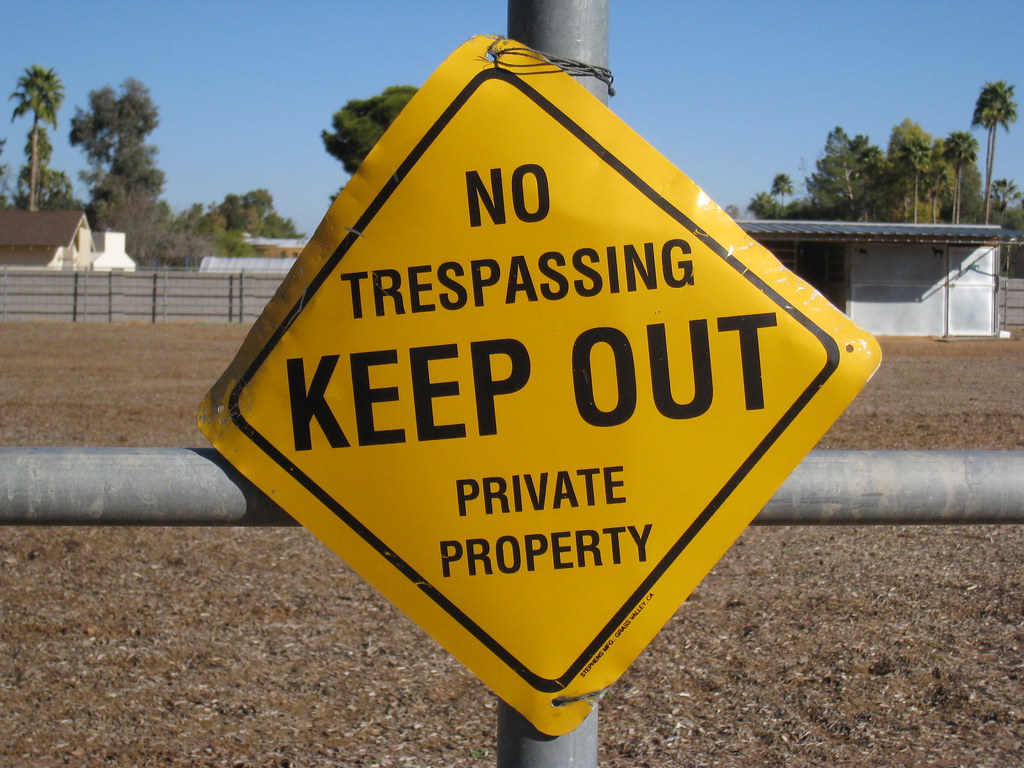GA Self-Defense Laws: Can You Shoot Someone on Your Property in Georgia?
Contents
- GA Self-Defense Laws: Can You Shoot Someone on Your Property in Georgia?
- Use of Force Statute
- Understanding the Castle Doctrine in Georgia
- Stand Your Ground Law Georgia
- What constitutes “your property” in Georgia?
- Can You Shoot Someone on Your Property in Georgia?
- Duty to retreat and its exceptions in Georgia
- Legal consequences of using deadly force
- Steps to take after a self-defense incident on your property
Georgia is a “Stand Your Ground” state. This means that under certain circumstances, one is able to shoot a trespasser. However, one must feel that their life is in imminent danger. If you have shot an intruder to defend yourself against imminent harm or death, you should contact a Georgia criminal law attorney as soon as possible, and before you speak to the police.
In this post, we will be exploring Georgia’s self-defense laws and what you need to know to ensure you are within your legal rights if you ever find yourself in a situation where you need to use deadly force on your property. We will also be discussing the circumstances that can make your use of force justifiable, as well as what you can do to protect yourself and your family from potential harm. By the end of this article, you will have a better understanding of the law and how it applies to self-defense on your Georgia property.
Use of Force Statute
Georgia Code § 16-3-21 allows one to use force if one must protect one’s self or someone who is on one’s property with permission – a third party – against someone’s unlawful force. However, for one to lawfully use deadly force, one’s own life must have been in danger.
- A person is justified in threatening or using force against another when and to the extent that he reasonably believes that such threat or force is necessary to prevent or terminate such other’s trespass on or other tortious or criminal interference with real property other than a habitation or personal property:
- Lawfully in his possession;
- Lawfully in the possession of a member of his immediate family; or
- Belonging to a person whose property he has a legal duty to protect.
- The use of force which is intended or likely to cause death or great bodily harm to prevent trespass on or other tortious or criminal interference with real property other than a habitation or personal property is not justified unless the person using such force reasonably believes that it is necessary to prevent the commission of a forcible felony.
Generally, one cannot use deadly force if they are the aggressor or if they are committing, about to commit, or have just committed a felony.
Georgia’s ‘Stand Your Ground’ law is sometimes referred to as the “Castle Law,” as one is given great latitude to protect one’s home, or “castle.” However, there are some exceptions. For example, if the intruder is outside and you are inside, you may be charged with murder if you kill that person since your life is likely not in imminent danger. However, if you are both outside you may have a reasonable fear for your life. If you are both inside, you may have a reasonable fear for your life.
Understanding the Castle Doctrine in Georgia
When it comes to self-defense laws, it’s crucial to understand the Castle Doctrine, especially if you reside in Georgia. The Castle Doctrine is a legal principle that provides individuals with the right to use force, including deadly force, to defend themselves and their property within their own residences.
In Georgia, the Castle Doctrine is firmly established and grants residents a significant level of protection. Under this doctrine, if an individual reasonably believes that they or someone else is facing imminent harm or death, they have the right to use force, including lethal force, to protect themselves or others within their home.

However,the Castle Doctrine does not give individuals an unrestricted license to use deadly force. The law specifies that this right can only be exercised if there is a reasonable belief of an imminent threat, and there is no obligation to retreat from the situation before using force.
It’s crucial to understand the nuances of the Castle Doctrine and the specific self-defense laws in your state to ensure you are well informed and can make the right decisions in the event of a threatening situation. Familiarizing yourself with the laws, consulting with legal professionals, and staying up-to-date with any changes in legislation will help you navigate the complexities of self-defense laws and ensure that you are aware of your rights and responsibilities as a resident of Georgia.
Stand Your Ground Law Georgia
In the state of Georgia, the concept of “Stand Your Ground” plays a significant role in self-defense laws. This concept essentially allows individuals to use force, including deadly force, to protect themselves or others from imminent threats without the obligation to retreat first. However, it is important to note that this concept is not absolute and is subject to certain conditions and limitations.
Under Georgia law, a person is justified in using force, including deadly force, if they reasonably believe it is necessary to defend themselves or others against the imminent use of unlawful force. This means that if someone enters your property unlawfully and poses a threat to your safety or the safety of others, you may have the right to use force, including deadly force, to protect yourself or others.
Use of force must be proportional to the threat faced.
If a person reasonably believes that they are in imminent danger of death or serious bodily harm, then the use of deadly force may be justifiable. On the other hand, if the threat is only minor or non-life-threatening, the use of deadly force may not be considered reasonable or justifiable.
Does not provide immunity from legal consequences or shield individuals from a thorough investigation.
While the law may provide a legal defense, it does not automatically absolve individuals of any criminal or civil liability. Each case is evaluated on its own merits, and it is up to the legal system to determine whether the use of force was justified under the circumstances.
What constitutes “your property” in Georgia?
In the state of Georgia, it is essential to have a clear understanding of what constitutes your property when it comes to self-defense laws. Protecting one’s home and personal safety is a fundamental right, but it is crucial to know the boundaries of your property to avoid legal complications.
In Georgia, your property typically includes the land you own, along with any structures or dwellings on that land. This can encompass:
- your house
- your garage
- your backyard
- and any other structures that are considered part of your property.
Georgia law recognizes a person’s right to defend their home and property from intruders or potential threats.
Can You Shoot Someone on Your Property in Georgia?
Understanding the laws surrounding self-defense is crucial, especially when it comes to the use of deadly force on your own property. In the state of Georgia, like in many other states, there are specific guidelines that determine when you can legally shoot someone in self-defense.
According to Georgia law, you have the right to protect yourself and others from imminent harm or death. If you reasonably believe that you or someone else is in immediate danger of serious bodily harm or death, you may use deadly force to defend yourself.
However, it is important to note that the use of deadly force is only justified when you are inside your home or on your property. This is commonly referred to as the “Castle Doctrine.” Under the Castle Doctrine, you are not legally required to retreat from your home or property before using deadly force, as long as you have a reasonable belief that it is necessary to protect yourself or others.
It is important to emphasize that the use of deadly force should be a last resort. If there is a reasonable opportunity to retreat or escape the situation without using lethal force, it is generally advised to do so. The law recognizes that self-defense should be proportionate to the threat faced, and using excessive force can lead to potential legal consequences.
Duty to retreat and its exceptions in Georgia
In the state of Georgia, understanding the laws surrounding self-defense is crucial, especially when it comes to protecting your property. One key aspect to consider is the concept of duty to retreat, which refers to the obligation of an individual to attempt to avoid or escape a dangerous situation before resorting to the use of force.
Under Georgia law, the duty to retreat exists in certain circumstances. If you find yourself facing an intruder on your property, you generally have a duty to retreat and avoid the use of force if it is safe and reasonable to do so. This means that you should make an effort to leave the premises or seek an alternative means of escape before resorting to any form of self-defense.
Exceptions to the duty to retreat.
These exceptions recognize that there are instances where retreating may not be feasible or safe. For example, if you are inside your own home and are confronted with an intruder who poses a threat to your safety or the safety of others, you may have the right to stand your ground and defend yourself without retreating.
Georgia law allows for the use of force, including deadly force, in defense of your property under certain circumstances. If you reasonably believe that such force is necessary to prevent the commission of a forcible felony, such as burglary or robbery, you may be justified in using force to protect your property.
It is crucial to understand that the laws surrounding self-defense can be complex and specific to individual jurisdictions. It is always recommended to consult with a qualified legal professional who can provide guidance tailored to your particular situation and ensure that you fully understand your rights and responsibilities.
Legal consequences of using deadly force
Understanding the legal consequences of using deadly force is crucial when it comes to self-defense, especially on your Georgia property. While the laws vary from state to state, Georgia has specific statutes that outline the circumstances under which you can use lethal force, commonly known as the “Stand Your Ground” law.
In Georgia, the law allows individuals to use deadly force if they reasonably believe it is necessary to protect themselves or others from imminent death or serious bodily harm. However, it is important to note that the use of deadly force should be a last resort when all other options, such as retreating or calling the police, have been exhausted.
To justify the use of deadly force, Georgia law requires that you have a reasonable belief that such force is necessary to prevent the commission of a forcible felony, such as murder, robbery, rape, or kidnapping. It is essential to demonstrate that you had a genuine and imminent fear for your life or the lives of others present.
It is important to understand that the burden of proof lies on the individual who used deadly force. You will need to provide evidence and testimony to support your claim of self-defense. This includes documenting any injuries sustained, gathering witness statements, and cooperating fully with law enforcement during their investigation.
However, it is crucial to consult with a legal professional who specializes in self-defense laws in Georgia to ensure that you fully understand your rights and responsibilities. They can provide you with guidance on how to navigate such situations and help you protect yourself legally.
Steps to take after a self-defense incident on your property
After a self-defense incident on your property, it is crucial to take the appropriate steps to protect yourself legally and ensure that you are complying with the laws of your state, such as Georgia. While every situation can vary, there are some general steps you should consider taking:
- Ensure your safety: First and foremost, make sure that you and your loved ones are safe and out of harm’s way. If there is an immediate threat, contact law enforcement or emergency services right away.
- Call the police: Regardless of the circumstances, it is important to report the incident to the police as soon as possible. Provide them with accurate and detailed information about what happened. Remember to remain calm and cooperative when speaking with the authorities.
- Seek medical attention: If anyone involved in the incident, including yourself, sustained injuries, seek medical attention promptly. Even if you don’t initially feel injured, it’s important to get checked out to ensure there are no underlying issues. Additionally, obtaining medical documentation can be crucial for legal purposes.
- Document the scene: Preserve the evidence by taking photographs or videos of the scene. Capture any damages or signs of forced entry, if applicable. This documentation can be valuable if you need to prove the necessity of your actions in a legal proceeding.
- Gather witnesses: If there were witnesses present during the incident, obtain their contact information. Witnesses can provide valuable testimonies to support your side of the story if needed.
- Consult with an attorney: It is highly recommended to consult with a knowledgeable attorney who specializes in self-defense laws. They can provide guidance specific to your situation and help navigate the legal process.
- Limit discussions about the incident: Be cautious about discussing the incident with others, particularly on social media platforms. Anything you say or write can potentially be used against you in legal proceedings. It’s best to let your attorney handle the communication regarding the incident.




